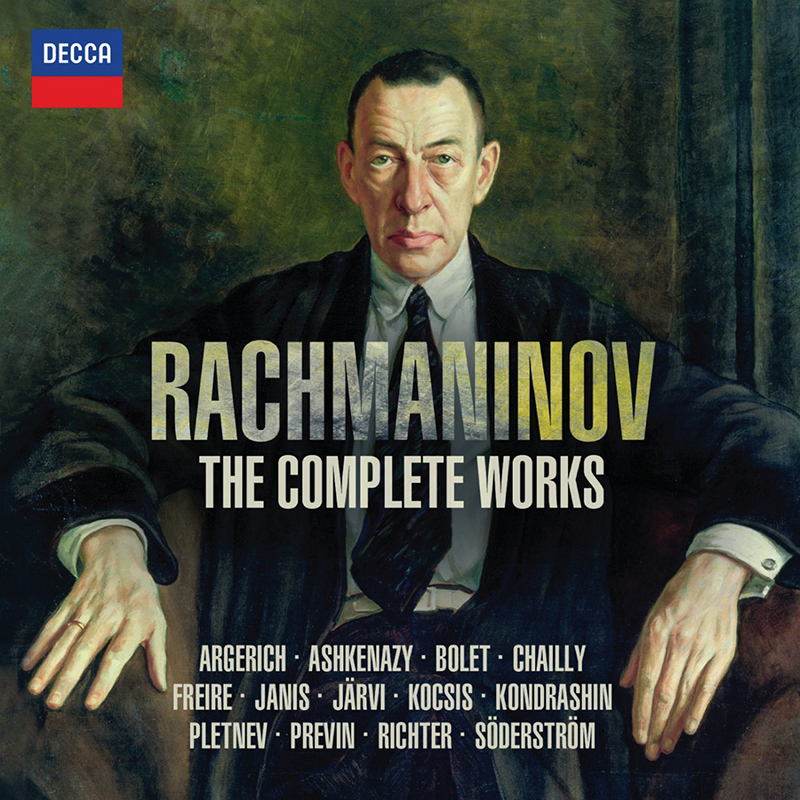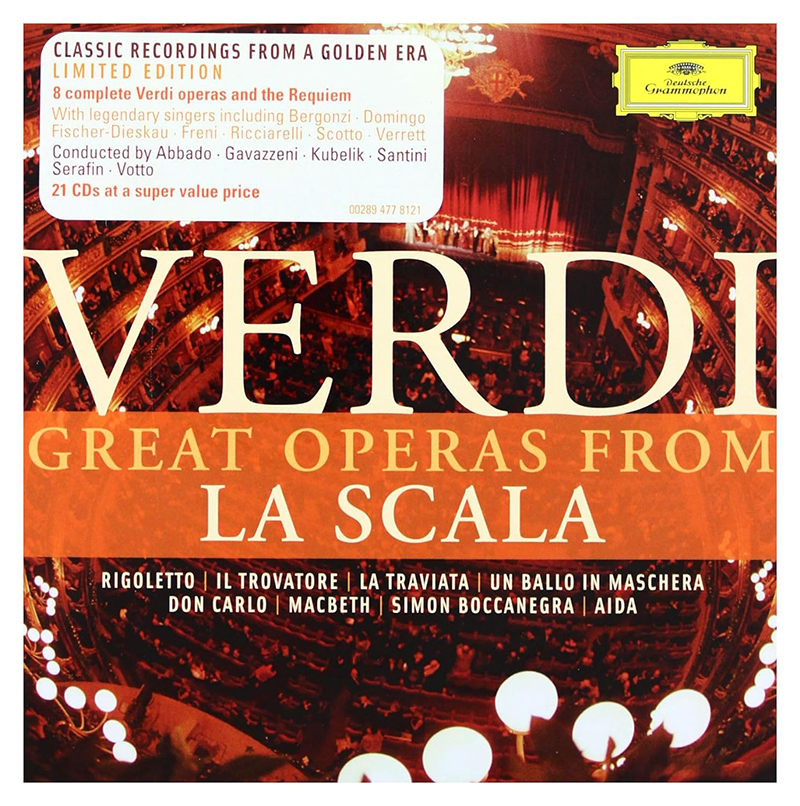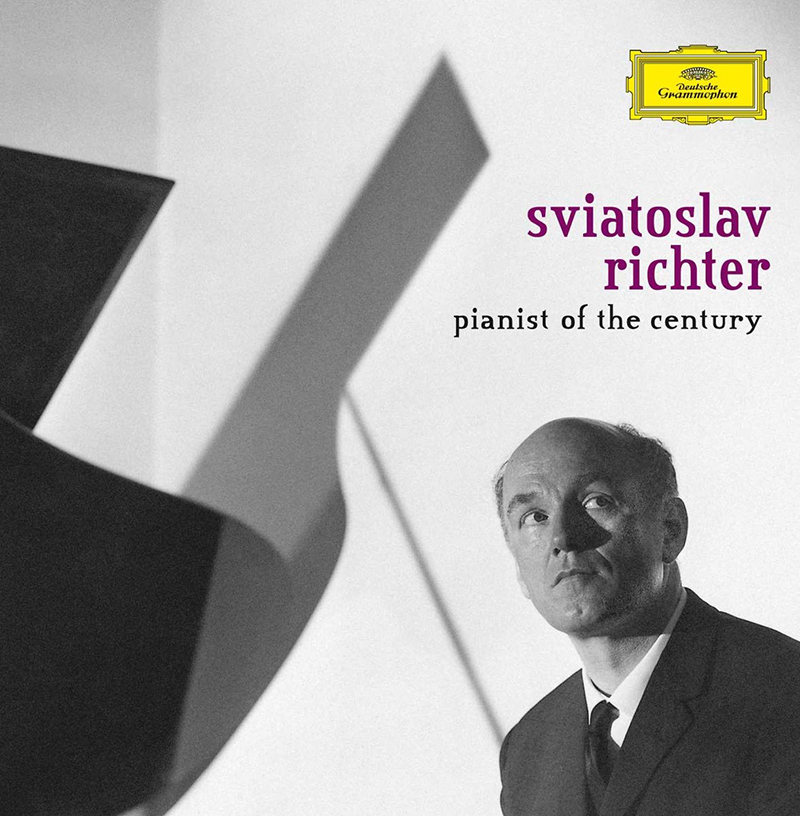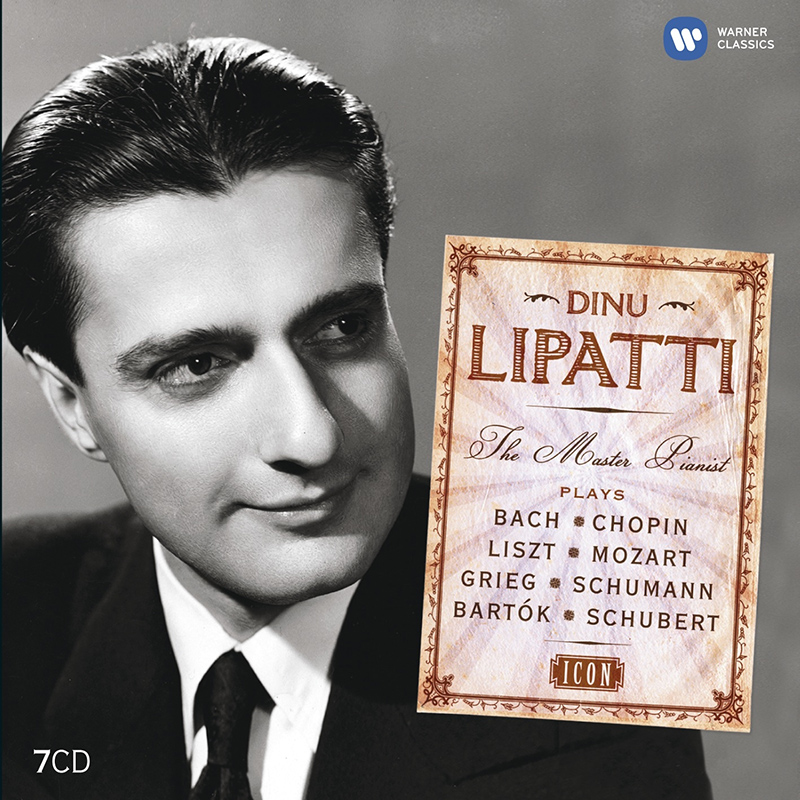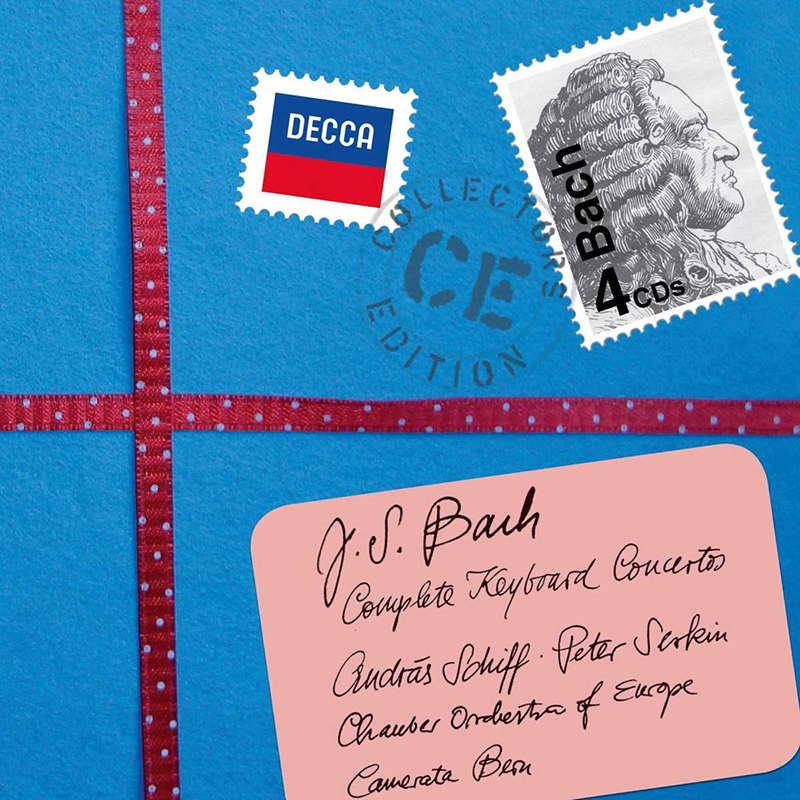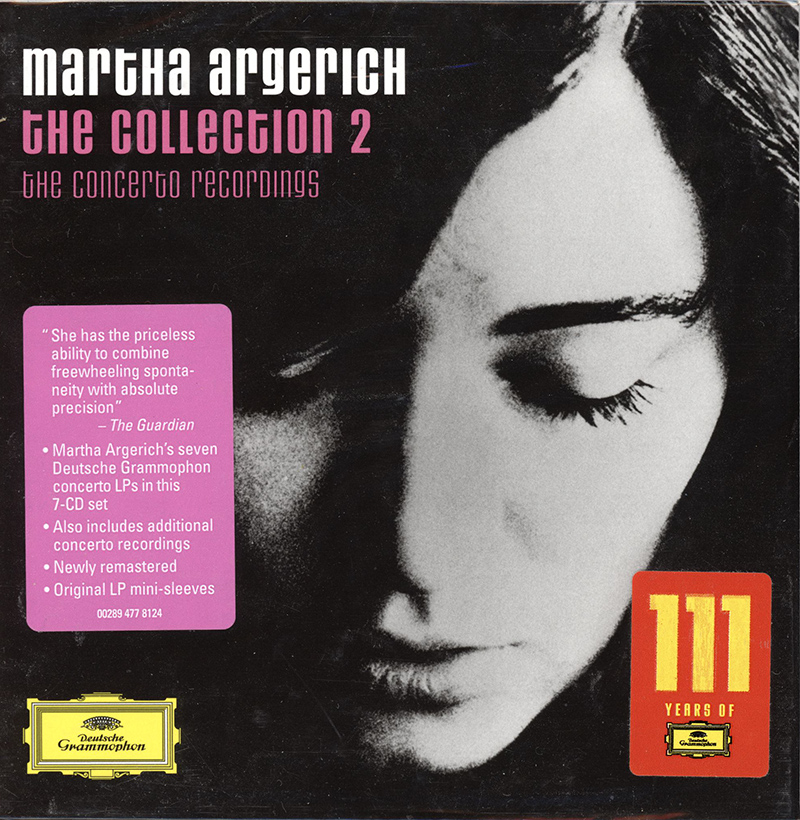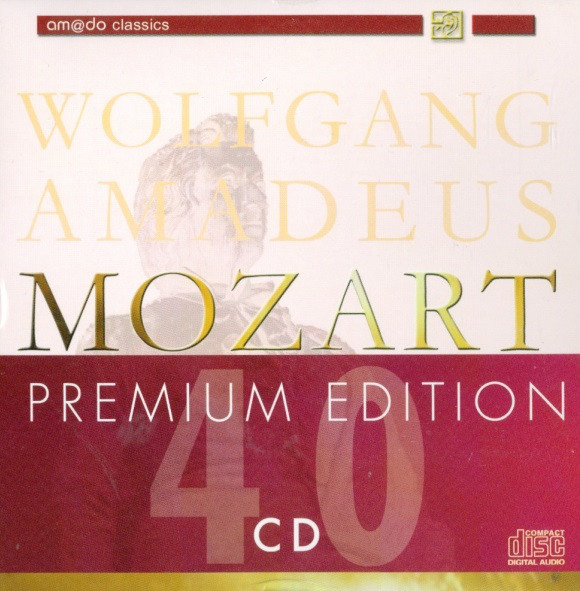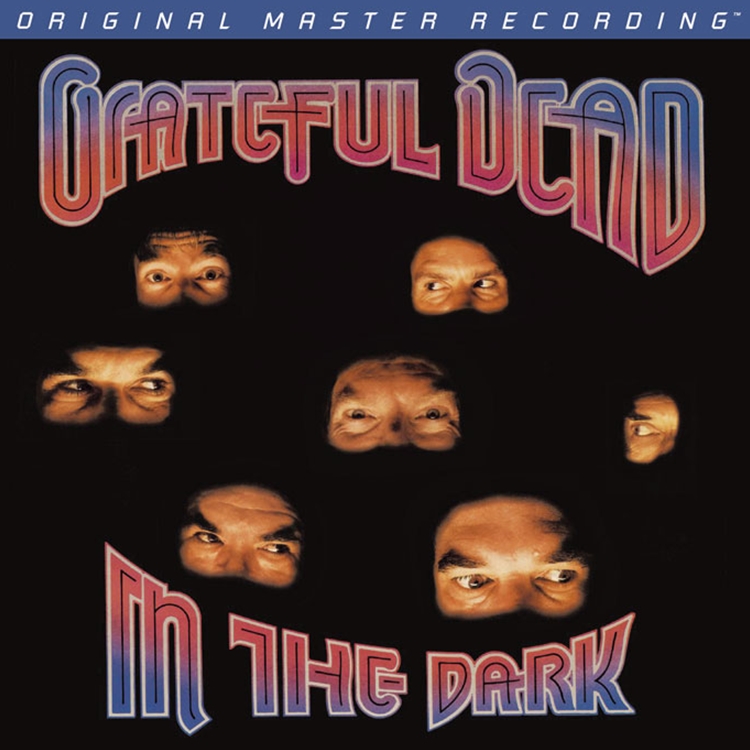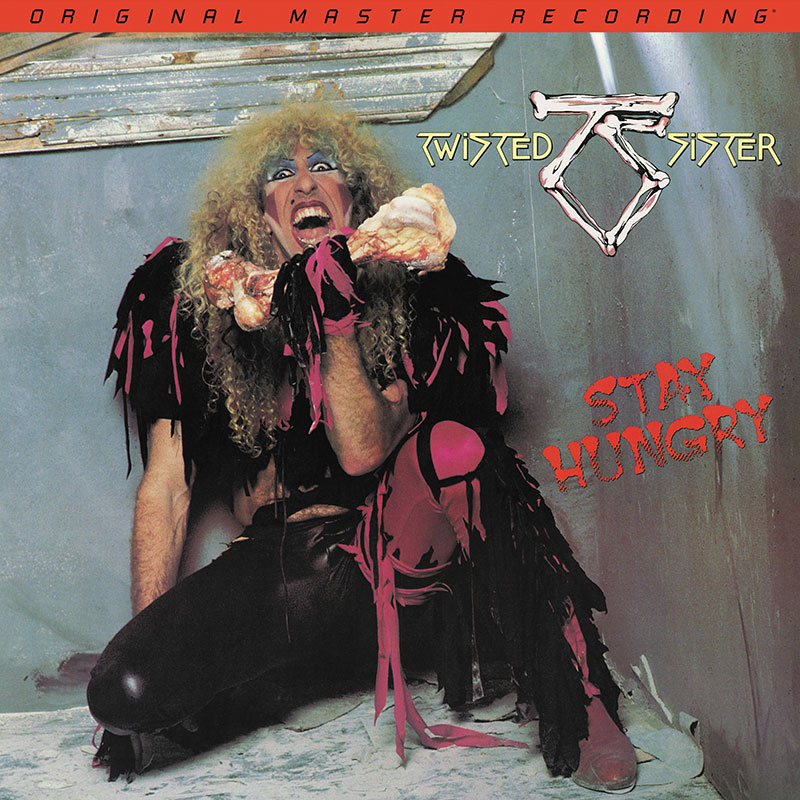Logowanie
KOLEKCJE!
BACH, CHOPIN, LISZT, MOZART, GRIEG, Dinu Lipatti, Otto Ackermann, Ernest Ansermet
The Master Pianist
PROKOFIEV, CHOPIN, TCHAIKOVSKY, SCHUMANN, BEETHOVEN, Martha Argerich, Claudio Abbado, Giuseppe Sinopoli
The Concerto Recordings
The Collection 2
Jakość LABORATORYJNA!
ORFF, Gundula Janowitz, Gerhard Stolze, Dietrich-Fischer Dieskau, Deutsche Oper Berlin, Eugen Jochum
Carmina Burana
ESOTERIC - NUMER JEDEN W ŚWIECIE AUDIOFILII I MELOMANÓW - SACD HYBR
Winylowy niezbędnik
ClearAudio
Essence MC
kumulacja zoptymalizowana: najlepsze z najważniejszych i najważniejsze z najlepszych cech przetworników Clearaudio
Direct-To-Disc
PIAZZOLLA, ChamberJam Europe
Tangos del Ángel y del Diablo
Direct-to-Disc ( D2D ) - Numbered Limited Edition
Grateful Dead
In the dark
- Grateful Dead - group
The Dead Will Survive: 1987 Album Gave Band New Lease on Life, Best Studio Effort in More Than a Decade
Mastered from the Original Master Tapes: Jerry Garcia and Bob Weir’s Dynamic Magnified, Bluesy Riffs Properly Textured
In the Dark Contains “Touch of Grey”: Dead’s Only Top 40 Hit Entire Album Boasts Continuity, Flow, and Cheer of a Memorable Live Show: After More Than a Decade, Group Finally Tallied Another Studio Masterwork
In the Dark will forever be known as the Grateful Dead record that propelled the iconic band into the mainstream conscious more than two decades after its career began. Thanks to undeniable hooks, sing-a-long refrains, and shrug-it-off sentiments on the survivalist anthem “Touch of Grey,” the Dead was exposed to new generations of listeners and, in the process, became celebrity figures that packed football stadiums with fans. But In the Dark remains significant for many other, more important reasons—Jerry Garcia’s stunning recovery from a coma, Garcia and Bob Weir’s compelling dynamic, and an impeccable batch of tunes. It also stands bar-none as the sextet’s finest output since 1975.
Half-speed mastered from the original master tapes and part of the label’s unprecedented Grateful Dead reissue series, Mobile Fidelity’s numbered limited edition 180g LP of In the Dark presents the Dead’s long-overdue breakthrough in attention-grabbing fidelity. Even in an era in which the most revered artists succumbed to the day’s prevailing sound (namely, slick textures and artificial keyboard-heavy production that evoked the feel of Saran-Wrap) the band remained obstinate in its allegiance to revealing fidelity. As it happened, the Dead recorded most of the record live onstage at Marin Civic Auditorium using the then-newly introduced Dolby SR—a technology that permitted astounding instrumental separation, even when playing live. The group’s inimitable blend now sounds better, more immediate, and natural than ever.
Everything including the clip-clop of cowbells, Mickey Hart and Billy Kreutzmann’s rhythm-devil grooves, Phil Lesh’s supple bass lines, Garcia’s sweetened timbre, and Brent Mydland’s pastel-shaded keyboard melodies converges into a delightfully balanced, animate entity. The music possesses tube-like warmth and glow, and the band’s renewed vigor and, particularly, Garcia’s mellifluous guitar tones and rippling passages, come across with irresistible immediacy, heft, and vitality. Several effects—the revving of a motorcycle engine, which moves with precise imaging across an extremely wide soundstage and various synthesizer interjections among them—highlight lyrical turns and add winking humor. In the Dark is a late-80s anomaly: A great and great-sounding rock album that isn’t the least bit dated.
While there’s no single secret behind the record’s success and its position as the greatest studio achievement of the Dead’s last two decades, In the Dark boils down to the essential ingredients of great songwriting and the kind of loose, spirited, frolicking chemistry that the sextet so often demonstrated onstage. Weir and Garcia engage in a friendly competition of gamesmanship. The rhythm guitarist’s cleverly cynical “Hell In a Bucket” is one of the toughest, nastiest songs in the Dead’s catalog; “Throwing Stones,” his image-laden treaty on greed, politics, responsibility, and the environment, benefits from a complex arrangement sent up with marching bridges and spidery guitar work.
For his part, Garcia’s haunting slow blues “West L.A. Fadeaway” makes room for Weir’s skillful slide-guitar fills while the poignant, merciful reflection “Black Muddy River”—dressed in gospel gowns and Biblical allusions—completes the circle the Dead began back in the late 1960s when the group ended its marathon shows with the traditional spiritual “And We Bid You Good Night.” The white-bearded legend clearly has fun throughout, and, obviously energized by a second chance on life, pours his soul into the music.
Mydland’s performance and presence aren't to be overlooked. Equipped with the vocal harmony potential of a choir of angels, his poignant backing singing on “Black Muddy River” aches with beauty. Similarly evocative, his lead on the hobo country-blues “Tons of Steel” evokes equal parts move-on sympathy and regrettable loss. It can be strongly argued that his piano lines and right-hand fills throughout constitute the most valuable the Dead ever received on a record. Chalk them up to an integral part of an album on which every star aligned, good fortune prevailed, and the Dead finally achieved the widespread recognition it had long been overdue.
"The original pressing was mastered DMM, uncredited, at Masterdisk. And that sounded great. But this Mobile Fidelity reissue is much better. Much better. It loses none of the original's spaciousness and transient clarity while sounding richer, fuller, more, dynamic, more three dimensional and depth-charged on bottom. The transient dynamic accents will have you jumping out of your skin if not your seat."
--Michael Fremer, Analog Planet, August 6, 2012
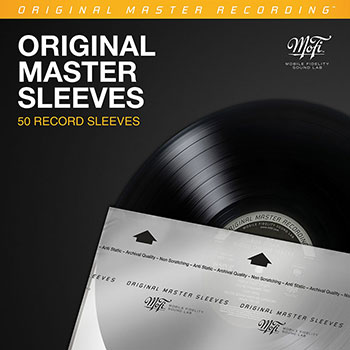 >>> Płyty winylowe należy przechowywać WYŁĄCZNIE w NAJLEPSZYCH NA ŚWIECIE koszulkach produkcji legendarnej wytwórni MOBILE FIDELITY.
100% gwarancji na pozbycie się trzasków będących w istocie w 90% efektem ładunków elektrostatycznych a nie uszkodzeń mechanicznych płyty! <<<
>>> Płyty winylowe należy przechowywać WYŁĄCZNIE w NAJLEPSZYCH NA ŚWIECIE koszulkach produkcji legendarnej wytwórni MOBILE FIDELITY.
100% gwarancji na pozbycie się trzasków będących w istocie w 90% efektem ładunków elektrostatycznych a nie uszkodzeń mechanicznych płyty! <<<
 >>> Ten zestaw to podstawa każdego toru winylowego! <<<
>>> Ten zestaw to podstawa każdego toru winylowego! <<<
